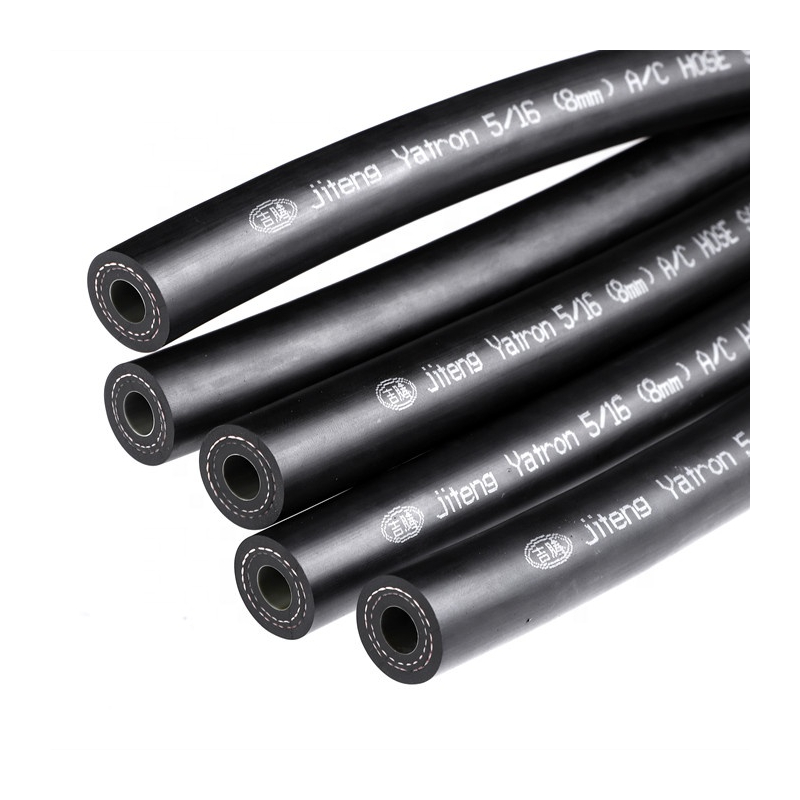oil coolant pipe
វិច្ឆិកា . 17, 2024 20:33 Back to list
oil coolant pipe
Understanding Oil Coolant Pipes Their Role and Importance in Engine Performance
In the intricate world of automotive engineering, every component plays a crucial role in ensuring optimal performance and longevity of the engine. One such component, often overlooked but fundamentally significant, is the oil coolant pipe. This article aims to explore the function, design, and importance of oil coolant pipes in modern vehicles, as well as common issues and maintenance tips.
What is an Oil Coolant Pipe?
An oil coolant pipe is a tubular component that serves the essential purpose of regulating the temperature of engine oil by facilitating the transfer of heat away from the engine. Engine oil is not only vital for lubrication but also plays a critical role in cooling various engine components. As the engine operates, oil absorbs heat generated from friction and combustion processes. The oil coolant pipe helps direct the heated oil to a cooler, where it can be cooled down before circulating back into the engine.
The Mechanism of Heat Transfer
The process of heat transfer within an oil coolant system typically involves the use of a heat exchanger, commonly known as the oil cooler. In this setup, the hot oil travels through the oil coolant pipe to the oil cooler, where it comes in contact with cooler coolant fluid from the radiator. As the hot oil passes through, it transfers heat to the coolant, effectively lowering its temperature. Once cooled, the oil returns to the engine via the same or a different pipe, ready to perform its lubricating and cooling duties again. This cycle is imperative for maintaining engine efficiency, prolonging the life of engine components, and preventing overheating.
Importance of Oil Coolant Pipes
The importance of oil coolant pipes cannot be overstated
. They play a vital role in1. Engine Performance Maintaining the right oil temperature is crucial for ensuring optimal viscosity. If the oil is too hot, it loses viscosity, which can lead to inadequate lubrication and increased wear and tear on engine parts. Conversely, if the oil is too cold, it becomes too thick to flow properly, causing sluggish performance.
2. Preventing Overheating Elevated temperatures can lead to severe engine damage. Oil coolant pipes help prevent overheating by ensuring a consistent flow of cooled oil throughout the engine, safeguarding it from thermal stress.
oil coolant pipe

3. Fuel Efficiency An engine running at its ideal temperature operates more efficiently, consuming less fuel. By controlling the oil temperature, oil coolant pipes contribute to better fuel economy.
4. Longevity of Engine Components Proper cooling and lubrication reduce the risk of engine knock and other potentially destructive phenomena, thereby extending the lifespan of critical engine components.
Common Issues and Maintenance
While oil coolant pipes are designed to be durable, they can encounter several issues over time, primarily due to wear, corrosion, or blockage. A few common problems include
- Leaks Over time, seals and joints may become compromised, leading to oil leaks. A drop in oil levels can result in inadequate lubrication, leading to engine damage.
- Clogs The accumulation of debris or sludge can obstruct the coolant flow, impacting the cooling efficiency. Regular maintenance can help mitigate this.
- Corrosion Depending on the materials used, pipes may be susceptible to corrosion, especially if exposed to harsh environmental conditions. Regular inspections can help identify and address corrosion before it leads to system failure.
To prevent these issues, routine maintenance is essential. Regular oil changes, inspections of the coolant system, and checking for leaks or corrosion can help ensure that oil coolant pipes function effectively. Additionally, using quality coolant fluids that resist sludge formation can further enhance performance.
Conclusion
Oil coolant pipes are integral to maintaining optimal engine health and performance. By facilitating effective heat transfer and maintaining appropriate oil temperatures, these components help enhance engine efficiency, prevent overheating, and extend the lifespan of critical engine parts. Understanding their function and importance can lead to better maintenance practices, ultimately ensuring a more reliable and efficient vehicle. Whether you're a car enthusiast or a daily driver, recognizing the value of the oil coolant pipe is essential for fostering a healthy engine. Regular checks and maintenance can go a long way in preserving performance, enhancing fuel efficiency, and prolonging the life of the engine.
